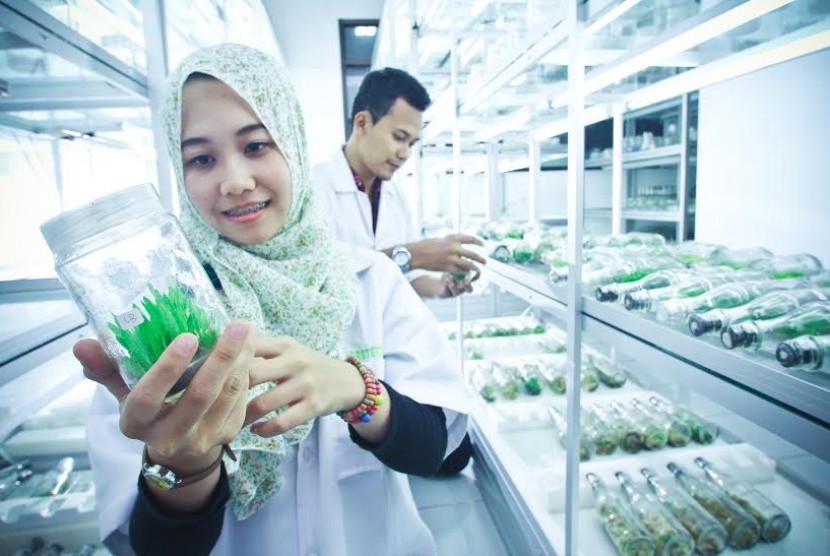REPUBLIKA.CO.ID, CIBINONG -- Indonesia and Germany have established cooperation for research in biodiversity to develop the bioeconomy field as it would lead to prosperity.
The two countries set up cooperation through the Indonesian Institute of Sciences (LIPI) and the German Museum für Naturkunde (MfN), according to Indonesian scientist Hari Sutrisno last week.
"All biodiversity sources have potential properties which, if studied, can turn out to be extraordinary economic resources," Hari Sutrisno, the chief zoology researcher of LIPI's Biological Research Center, said during a traveling conference on Biodiversity as an Economic Resource and Innovative Exploitation for Science and Society (BIORES) in Cibinong, West Java, on Thursday last week.
He said several types of antibiotic substances are found in microbes. The demand for antibiotics is very high and these have immense economic value. Plants have anti malaria and anti cancer medicinal properties.
These potentials are yet to be fully explored, though these could virtually become massive bio-economic resources and a potential asset to develop the economy of this country, he said.
"Therefore, in the context of cooperation with Germany, we need to identify applied research topics. It could also serve as an initial step in developing a biodiversity information system on national and regional basis. This will provide speedy and easy access to the biodiversity resources in Indonesia," Hari noted.
The German MfN and the Indonesian LIPI have been cooperating since 2004 but remained limited to cooperation in basic research on taxonomy or certain species of animals.
Meetings, workshops and seminars have been held regularly in Indonesia and in Germany since 2012. In 2014, the German Federal Ministry of Education and Research (BMBF) agreed to provide funds to support the Indonesian-German partnership research activities with the theme, "Biodiversity and health - From biodiscovery to biomedical innovation."
Hari said the two sides had so far discussed research activities, starting from exploration to utilization of microbes, plants and insects as raw materials for anti-infection therapy, a data base information system, and improvement of Indonesian human resources through scholarship scheme.
Biodiversity explorations were conducted at Gunung Halimun Salak National Park in 2015 and will continue in the April-May period of 2016.
The travelling conference is aimed at boosting and promoting cooperation in various relevant fields, and will involve government, academicians, non-governmental organizations (NGO) as well as private companies. Thus, expanded cooperation is expected to pave the way for further utilization of resources to improve the nation's biodiversity-based economy.
Microbiologist researcher of LIPI's Biology Research Center, Sarjiya Antonious also expressed the hope that such cooperation would lead to biodiversity related technological transfer because this technology is badly needed to conduct speed studies to exploit the potential of biodiversity.
Speakers at the conference included German researchers Johannes Vogel, Christoph Häuser, Michael Balke, Thomas von Rintelen, J Overmann and Ludger Wessjohann.
They spoke of biodiversity related topics linked to global scientific infrastructure, taxonomy, expediting biodiversity findings, utilization of microbes and bioactive products.


